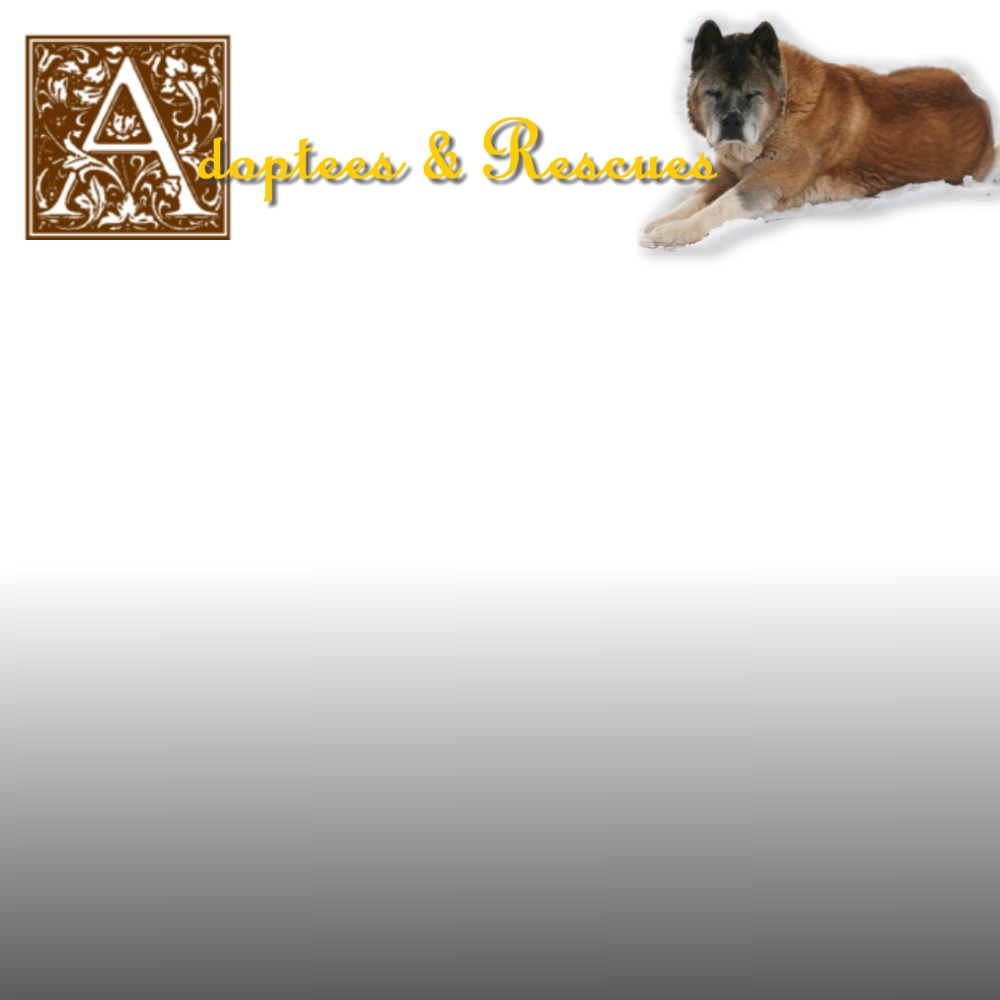
Since the inception of our breeding program, we have always had at least one rescue. And over the years, we have often introduced older dogs into our breeding program; Gummy was nearly two when we purchased him and both Gertie and Tuffy were older bitches when we added them to our kennel. All these situations have always worked well for us and with merely a little time, these dogs have become as adored as if they were born here.
Sometimes peoples’ lives aren’t suited to raising a puppy, whether it be lack of the inordinate amount of time needed to spend training, cleaning, exercising, and socializing or because the environment isn’t really puppy friendly. An adoptee or rescue might just be the perfect answer to wanting a dog and not really wanting the puppy stage.
Adoptees are older dogs, often Champions, that many breeders like to place in special homes when their show career is ended and/or their breeding career is ended. They can also be youngsters bred by a breeder who didn’t quite meet the stringent breeding/showing standards than the best breeders adhere by. Sometimes a dog that a breeder has sold comes back for any number of reasons that seldom have anything to do with the dog.
Rescues are dogs who end up in animal shelters, county animal facilities, local all breed rescues, private rescues or the many dedicated breed rescues throughout the country. And often these dogs end up in these facilities through no fault of their own. They end up abandoned because the people who should have been responsible for them were not and/or they didn’t have them properly identified. The majority of backyard breeders, pet stores and puppy farms do not have any interest in their puppies once they leave their premises. These are the dogs who end up as rescues. There is often little or no history that is known about a rescue dog including health and temperament but both of these are thoroughly checked by the majority of facilities that temporarily house them. An Akita should not be adopted without a breed knowledgeable person doing a complete temperament evaluation and a knowledgeable veterinarian doing a thorough physical exam.
What Can You Expect:
When you are adopting an older dog, regardless of their past history there are a few things to remember.
Probably the hardest thing to remember, because the dog is new to you, is that this dog is an adult with all the normal adult attitudes already a part of their being. I know this sounds really basic but sometimes people find themselves expecting an adult dog to respond with the blind trust and enthusiasm of a puppy from the very first day you bring your new dog home. Sometimes it’s very difficult not to expect your new family member to respond exactly like your old family member. In most cases, your new addition will respond the way you want them to, but not from the very beginning.
For the adult dog going to a new home, there is a distinct period of adjustment. We tell people to give the dog a month to bond with them. In that month, the dog is learning millions of things that you might not even realize…a billion new smells, new sounds, new words, new body language, new eye contact, new touch, new ways of touching, new clothes and how they sound and feel, new footsteps, new emotions, new tones of voice. The list is close to endless and they are learning these things without the support and confidence they would get from their former person. This period of adjustment and bonding is sometimes almost immediate and sometimes longer. Different dogs, like different people, respond differently to having their environment completely changed. Have patience, go slow, allow your new dog to accept you. You’ve already accepted him/her by opening your home and heart but they need to decide for themselves. Once they have, the rewards are endless and the love without compare.
Click on his name to read about him.

